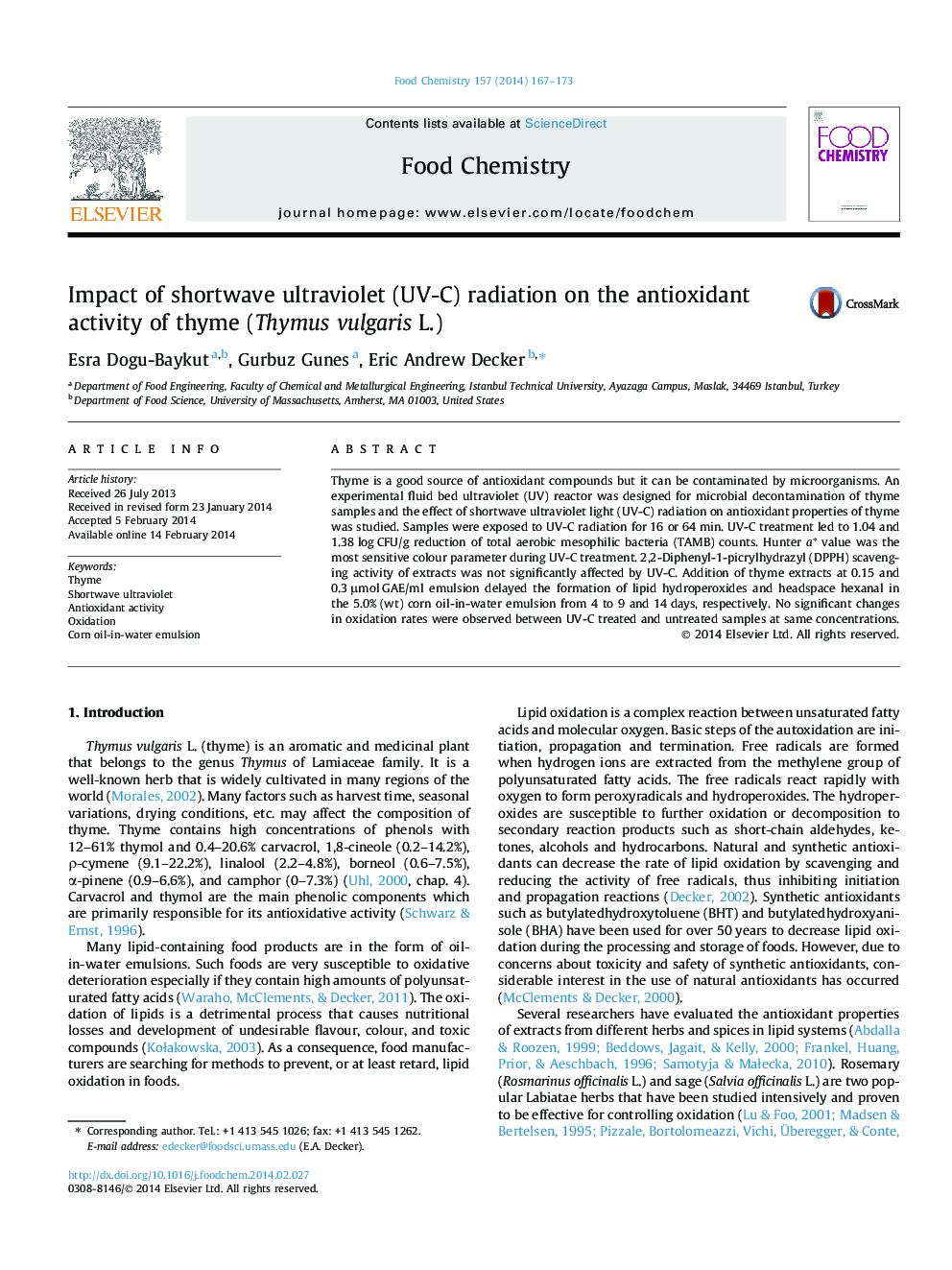| Article ID | Journal | Published Year | Pages | File Type |
|---|---|---|---|---|
| 1184569 | Food Chemistry | 2014 | 7 Pages |
•The influence of shortwave ultraviolet light (UV-C) on antioxidant properties of thyme was examined.•UV-C process was carried out in an experimental fluid bed UV reactor.•Antioxidant properties of extracts were not significantly affected by UV-C.
Thyme is a good source of antioxidant compounds but it can be contaminated by microorganisms. An experimental fluid bed ultraviolet (UV) reactor was designed for microbial decontamination of thyme samples and the effect of shortwave ultraviolet light (UV-C) radiation on antioxidant properties of thyme was studied. Samples were exposed to UV-C radiation for 16 or 64 min. UV-C treatment led to 1.04 and 1.38 log CFU/g reduction of total aerobic mesophilic bacteria (TAMB) counts. Hunter a∗ value was the most sensitive colour parameter during UV-C treatment. 2,2-Diphenyl-1-picrylhydrazyl (DPPH) scavenging activity of extracts was not significantly affected by UV-C. Addition of thyme extracts at 0.15 and 0.3 μmol GAE/ml emulsion delayed the formation of lipid hydroperoxides and headspace hexanal in the 5.0% (wt) corn oil-in-water emulsion from 4 to 9 and 14 days, respectively. No significant changes in oxidation rates were observed between UV-C treated and untreated samples at same concentrations.
